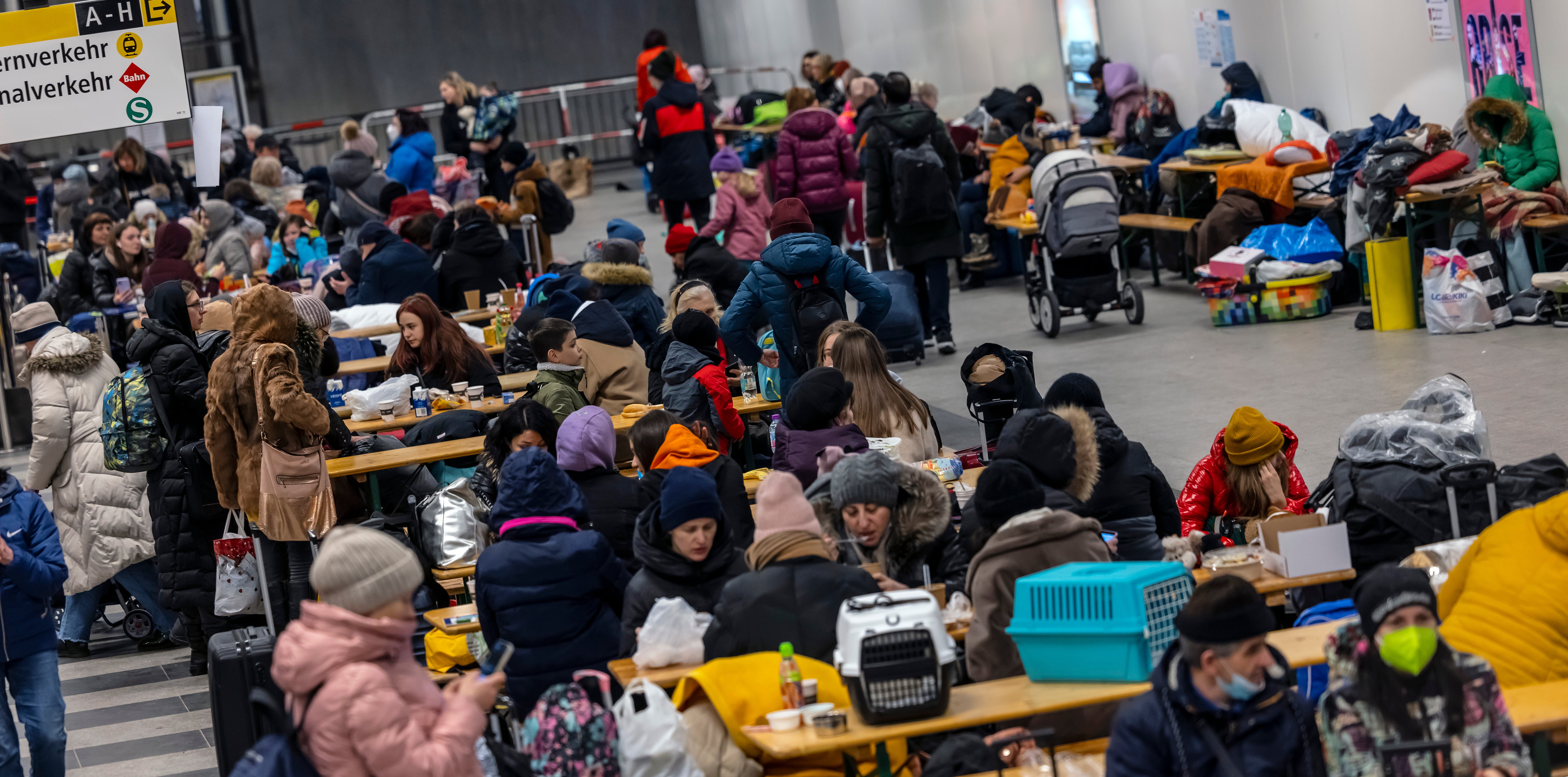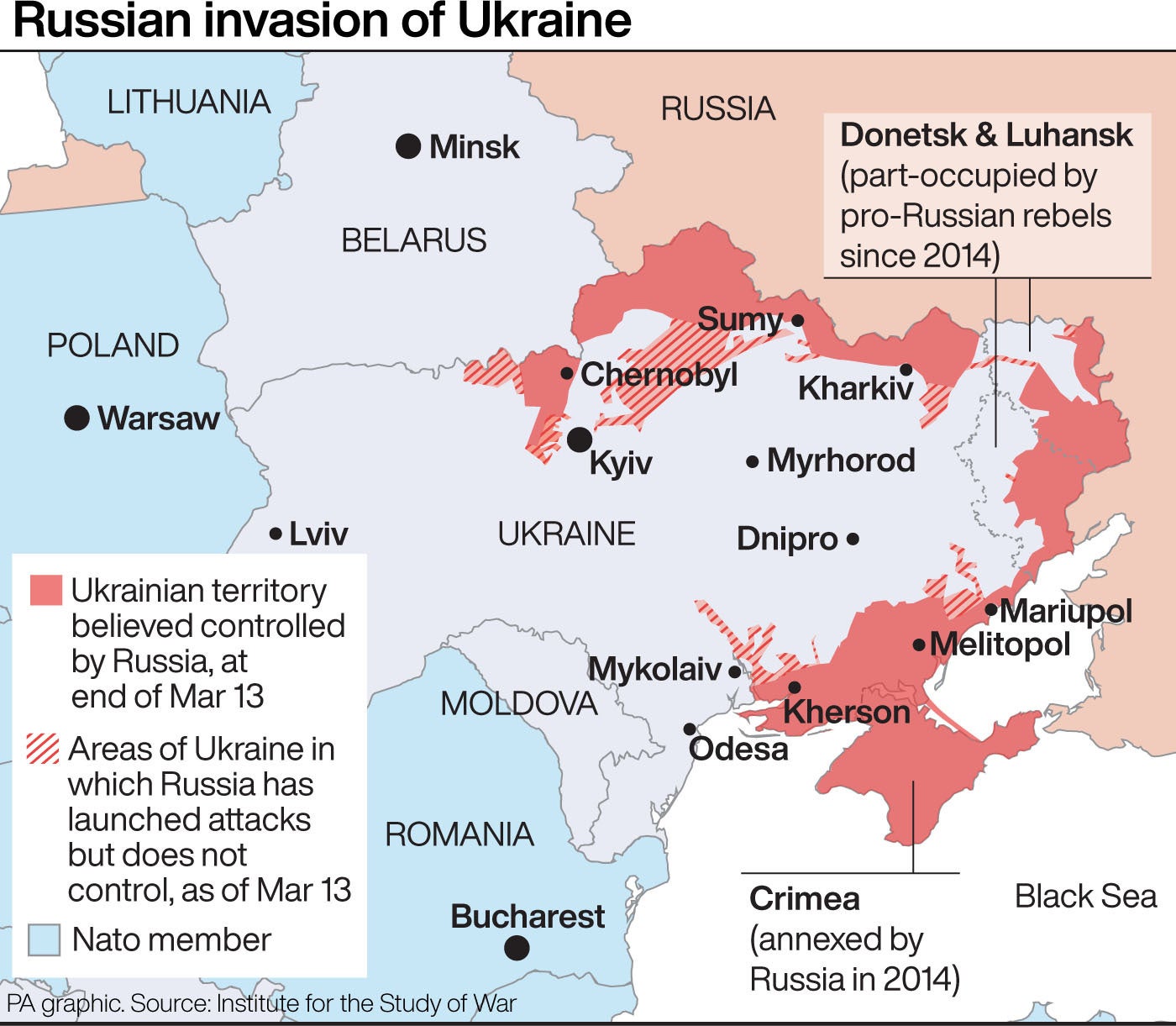Britons hoping to host Ukrainian refugees will need to know their names first
Campaigners concerned that naming process will mean ‘only refugees with connections to UK will benefit’

Your support helps us to tell the story
From reproductive rights to climate change to Big Tech, The Independent is on the ground when the story is developing. Whether it's investigating the financials of Elon Musk's pro-Trump PAC or producing our latest documentary, 'The A Word', which shines a light on the American women fighting for reproductive rights, we know how important it is to parse out the facts from the messaging.
At such a critical moment in US history, we need reporters on the ground. Your donation allows us to keep sending journalists to speak to both sides of the story.
The Independent is trusted by Americans across the entire political spectrum. And unlike many other quality news outlets, we choose not to lock Americans out of our reporting and analysis with paywalls. We believe quality journalism should be available to everyone, paid for by those who can afford it.
Your support makes all the difference.British families wishing to host Ukrainian refugees under the government’s new sponsorship scheme will be required to name them first, prompting concern that those without links to the UK will be “excluded” from the programme.
The government is to launch a website today that will allow people in the UK to register their interest in hosting Ukrainians who have fled the Russian invasion – which would see them paid £350 per month - with the process of matching hosts to refugees to begin from Friday.
Levelling Up minister Michael Gove, whose department is running the scheme and who will be announcing more details about the scheme later this afternoon, said on Sunday that he hoped individuals and community groups would be able to “match” with refugees using social media, adding that charities would help in the process.
The Independent understands that the department for Levelling Up, Housing and Communities (DLUHC) will require all hosts to put forward the names of refugees they can sponsor, and is anticipating that charities will come forward and offer to facilitate the matching process.
Charities have expressed alarm about this approach, warning that requiring prospective hosts to name refugees they wish to sponsor will mean that it is “only those with connections to the UK will benefit”.
Jenni Regan, chief executive at IMIX, a charity that aims to create a better conversation around migration, said this risked “excluding vulnerable people seeking refuge”, adding: “The naming principle may also add to a potentially lengthy and complicated visa process when people fleeing Ukraine need immediate help.
“Additionally, there are concerns that people from Ukraine are not being treated as refugees and they are not given guaranteed protection under the UN refugee convention. It’s likely to still only benefit those with a link, leading to a two-tier system of asylum.”
Lou Calvey, of Refugee Action, echoed her concerns, saying there were “huge risks” with requiring sponsors to know the names of refugees because it meant more vulnerable people would struggle to access the scheme.
“People who are well-connected or more social media literate and will be able to put themselves out there more might generate a match more easily,” she said.
“What about those who might not speak English, who have significant mental health issues, who are physically unwell, or who might not have any access to social media – how are we going to reach them? How are you supposed to gain access to the UK if you’re in that sort of situation?”
Ms Calvey said the communication from government with NGOs in the sector has been poor and accused ministers of “abdicating all responsibility”.
“I’m not saying it’s impossible to do, but if you’re going to do it right and you’re going to make sure that whatever you do has equal access to the most vulnerable and marginalised people. You’ve really got to do that right and you’ve got to talk to us about how you’re going to do it,” she added.
Other experts say that the naming system would be the best method of operating the scheme, as it would allow large numbers to come to Britain quickly and enable civic society to take the lead, rather than government departments.
The Independent is raising money for the people of Ukraine – if you would like to donate then please click here for our GoFundMe page.
Sunder Katwala, director of British Future, said: “I can see why it feels like it slows it down, but I would say – and there is strong evidence for this, certainly from Canada – that if you want a system to scale, that is definitely the best way to do it.
“The reason is that you’ve got a choice: whichever way we do this, by the end of the week, half a million people in Britain are going to want to be part of this scheme, and then somebody is going to match them up. Who do we think is best placed to find and attract Ukrainians who want to come to Britain and match them to people in Britain?
“Our choices are Priti Patel’s Home Office or British society as a whole. And I think British society as a whole – while it’s got a bigger job if the government doesn’t do this – is going to do it with more energy, more ambition, more creativity and more capacity than the government would.”
However, Mr Katwala opposed Mr Gove’s suggestion that prospective hosts use social media to seek out Ukrainian refugees to sponsor under the scheme, saying: “Trawling social media is a terrible message for safeguarding.”

It comes as charities expressed concern that the scheme could lead to potential exploitation and abuse of refugees, warning that “red flags could be missed in the vetting of potential hosts”.
Lauren Agnew, human trafficking policy expert at charity CARE, said: “We can be certain that some of this number will be seeing the Homes for Ukraine scheme as an opportunity to turn a profit at the expense of vulnerable individuals seeking refuge in the UK.
“Setting refugees up in homes around the UK is not the end of the story. There must be follow-up checks to ensure these individuals are not being exploited.”
The government has said each host will be checked against the police national computer for security concerns, and that all refugees will be registered with GPs and schools, where safeguarding checks will be carried out.
The Home Office’s Ukraine family scheme, which launched on 4 March, has so far issued 4,400 visas out of 32,400 applications that have been opened – meaning the UK is falling far short of the numbers of Ukrainians that other European countries have welcomed.
The Independent has a proud history of campaigning for the rights of the most vulnerable, and we first ran our Refugees Welcome campaign during the war in Syria in 2015. Now, as we renew our campaign and launch this petition in the wake of the unfolding Ukrainian crisis, we are calling on the government to go further and faster to ensure help is delivered. To find out more about our Refugees Welcome campaign, click here. To sign the petition click here. If you would like to donate then please click here for our GoFundMe page.
Join our commenting forum
Join thought-provoking conversations, follow other Independent readers and see their replies
Comments